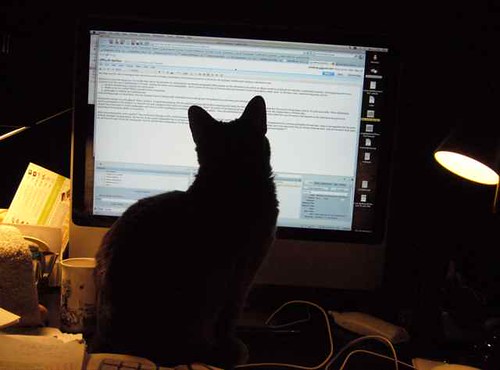Guest Post: Six Proofreading Tips for Homeschoolers
The following post is by Nikolas Baron. Note: this guest post is in line with Brave Writer principles, but we don’t necessarily endorse all of the author’s views or associations.
I remember, the Players have often mentioned it as an honour to Shakespeare, that in his writing, (whatsoever he penn’d) hee never blotted out line. My answer hath beene, would he had blotted a thousand.’
Those are the words of 17th century playwright, Ben Jonson, about his friend, William Shakespeare. Shakespeare, famously, did not proofread his work, and Jonson was saying that if he had he would have been a much better writer!
All writers make mistakes, but they can’t all get away with them like Shakespeare did. So, though clear and colorful content come first, it’s important for students to know that correcting mistakes is part of the process and that successful writers have trained themselves to edit and proofread their work.
Young writers don’t need to polish every piece of writing they produce, but when they do want to take a story or an essay to completion, here are a few tips to keep in mind:
1. Use a dictionary. Maybe that sounds a bit old-fashioned today, what with all the online help available, but a good dictionary is invaluable and can greatly improve spelling and vocabulary. The same can be said for a thesaurus. The English language is rich in synonyms and using a thesaurus can improve children’s writing immeasurably, as well as increase their awareness of the different ways of saying the same thing.
2. Cheat a little. If children write on the computer, encourage them to use a spellchecker or other online programs that highlight grammatical errors. There’s nothing wrong with a little outside help, and kids can learn from the suggested corrections (emphasis on “suggested,” because it’s okay to break the rules, sometimes).
3. Print it out. Instead of reading a computer screen, print the text. Mistakes can be seen much better that way.
4. Read out loud. Students should read through their work, and the best method is not a silent read through. Our brains tend to see what we think is written rather than what is actually on the page, so the most effective method is to have budding writers read their work aloud. This helps them concentrate on their words in a way that a silent read-through never can. If a sentence runs on and on, children will literally run out of breath when it’s verbalized! They will also hear where those all-important full stops and commas go. Misspelled words will stand out, too. Plus if students have missed a word, or the word order is wrong then they will be able to hear that. English is a highly rhythmic language, so as well as spotting errors more easily, reading out loud helps students decide if their writing “sounds right.”
5. Pick one thing. Proofread for certain features: one read through for spelling, one for full stops, one for commas, and so on.
6. Leave it alone. After finishing a piece of writing have children put it away for a day or two then have them go back and read it through once more. They’ll spot mistakes they missed the first time round, and they’ll also be able to decide if the structure of the piece needs altering.
Using some or all of these techniques will help students polish their writing, and pretty soon they’ll be using them automatically every time they put fingers to keyboard or pick up a pen.
Happy proofreading!
Nikolas Baron is a freelance writer. He works for Grammarly.com –an online program that not only checks spelling but also gives useful advice about commas, full stops, and other tricky punctuation features.
Image by Julia Manzerova



















I want to learn more???
[…] a good speller or typist or punctuator, but is responsible to ensure that final drafts have been edited to ensure those features are in […]
Good advice except for the cheating one, I do believe once you allow a child to cheat they take that attitude to all their work. I want an honest job done honestly, no shortcuts. If they do not know how to spell the word I want to know that also. I am looking for their own honest work, not the work of others. Homeschooled for 33 years with three grown children, and 3 now homeschooling and this principle of being honest has worked and helped my three oldest to be honest, hard working individuals. Just my opinion. Thank you